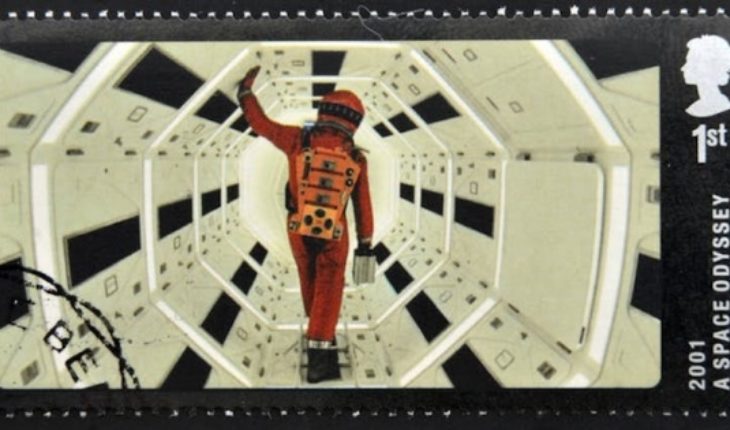Issues relating to robotics and what has been called “artificial intelligence” are the order of the day. As climate change and the twists of new global politics unsettle us, the issue of robotics fascinates us and blows our imaginations.
However, as in any major scientific and technological advancement, the objectives we set ourselves should be modulated by ethical reflection. If we don’t want to turn into a nightmare what could be the fulfillment of a beautiful dream so many times preteented.
The short-lived dream of the industrial revolution
The industrial revolution seemed to be able to free us from the heaviest jobs thanks to new machinery. Dickens was right to describe in some of his novels how such a utopia was ill-melled in taking his first steps. It actually led to the child exploitation of nineteenth-century factories. The subsequent assembly chains would be immortalized in the thirties of the last century by the Chaplin of Modern Times
Poster of the film Metropolis (Fritz lang, 1927)Fritz Lang showed us a futuristic Metropolis. In it the workers have to immolate so that a sacrosanct machinery called Moloch- continues to operate relentlessly.
Meanwhile a robot aims to promote a violent rebellion. His resemblance makes him impersonate those who can mediate the conflict between elites and workers to resolve it peacefully without resorting to violence.
This masterful film chronologically placed the fiction that narrates a century after its release. In the far away then 2026.
Emotions and artificial intelligence
One of the films Kubrick left unrealized was precisely titled Artificial Intelligence. His perfectionism made him hope that cinematic techniques would advance in the field of special effects. Finally it was Steven Spielberg who brought that title to the big screen. He focused his account on parents who have to settle for adopting a robot as a child. The sheared resources of the planet discourage procreation.
It is inevitable to quote the first Blade Runner here. This one is set in 2019. In it a robot decides to find his doer to ask him why he has made him mortal may not be. She says herself crying from her robotic existence in the legendary scene known as “tears in the rain.”
Compassionate Cyborgs other than Terminators
Advances in robotics are very promising in some terrains. They can come to us for some really useful things. As we see with those prostheses that supplement our limbs. Or those highly sophisticated gadgets that allow people with serious ailments like Stephen Hawking to express themselves.
Exploring the universe of future cyborgs is an extraordinary challenge for science. But that industry could lead to virtually indestructible Terminators or RoboCops designed only for great war feats. This would only delight those who make a lot of money from the lucrative arms industry.
Also Hall 9000 in 2001, an odyssey in space, despite not being even an android and not having a human appearance, expresses its irresistible fear of being disconnected. He expresses his longing not to frown. Solicita para sí mismo esa piedad que no ha dispensado a la tripulación del Discovery. Even if I can’t arouse any compassion in the ship’s sole survivor.
We’ve already proven that artificial intelligence can beat world chess champions and any other game, however complex this is. They are able to make tactical movements and deploy strategies that were not scheduled. So the big question is: can these machines experience something similar to our emotions? That’s the case with some of the robots that star in Blade Runner. They think they’re human enough to fall in love.
Ethics as a guide
Ethics cannot dictate the guidelines of their discoveries to engineers. But you must guide them. It is up to you to remember things as basic as the Kantian distinctions between purposes and means, people and things, or dignity and price.
Encouraging and extending the humanistic culture must be as important as enhancing technological advances. In the eighteenth century thinkers like Rousseau or Kant already warned us that our moral nature may become inversely proportional to our technological ingenuity. It’s a mistake that’s been made too many times. We should be sure not to repeat it.
Blindly betting on an innovative and revolutionary technological advancement like artificial intelligence, without weighing its effects from a moral perspective of it, can pass us large bills.
Avoid ingene a nightmare world
We’re asking whether companies should trade for their cyberworkers and other things like that. Previously, we should design action plans with very precise goals that do not disregard the moral problems inevitably associated with those resources.
Robot in Tokyo (photo by R.R. Aramayo)Imagine the humanization of androids is very stimulating. But it wouldn’t be bad to worry about the increasing robotization of humans, either. We are increasingly aware of what happens on the screens of the mobile or computer. Instead we belittle how much is going on around us among the congeners.
When we want to manage some procedure over the phone, we have to deal with an insufferable answering machine. If we turn to the internet, we are forced to identify ourselves as humans to a cyber robot. We have to tick some boxes to show that we are not another robot…
Some indications like these make us believe that Ridley Scott was quite right to place his famous Blade Runner in 2019. It is therefore worth asking, under what cultural and technological conditions we will celebrate in 2027 the first centenary of the futuristic Metropolis.
To chisel an alternative future to that provided by the futuristic cinematic dystopias, the moral talsant of which Aranguren spoke to us must serve as a compass to guide our scientific-technological talents.
Roberto R. Aramayo, Research Professor IFS-CSIC. Historian of moral and political ideas, Institute of Philosophy IFS-CSIC
This article was originally published in The Conversation. Read the original.





